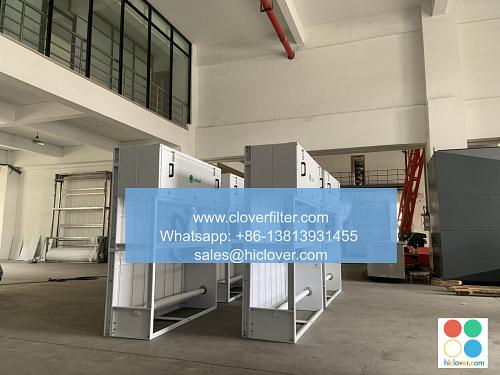Residential Air Filter Software: Improving Indoor Air Quality for Homeowners

The quality of indoor air is a significant concern for homeowners, as it can have a substantial impact on their health and wellbeing. Residential air filter software is an innovative solution that helps to improve indoor air quality by monitoring and controlling air filtration systems. In this article, we will explore the benefits of residential air filter software and its various applications in home automation, smart homes, and indoor air quality management.
What is Residential Air Filter Software?
Residential air filter software is a type of building automation software that is designed to monitor and control air filtration systems in residential buildings. This software uses IoT sensors and machine learning algorithms to detect changes in indoor air quality and adjust the air filtration system accordingly. The software can be integrated with various types of air filters, including HEPA filters, activated carbon filters, and UV air purifiers.
Benefits of Residential Air Filter Software
The use of residential air filter software offers several benefits to homeowners, including:
* Improved indoor air quality: The software ensures that the air filtration system is working efficiently to remove pollutants and allergens from the air.
* Energy efficiency: The software optimizes the air filtration system to use less energy, which can help to reduce energy bills and minimize the carbon footprint.
* Increased convenience: The software can be controlled remotely using a mobile app, allowing homeowners to monitor and adjust the air filtration system from anywhere.
* Extended filter life: The software can detect when the air filter needs to be replaced, which can help to extend its life and reduce maintenance costs.
Applications of Residential Air Filter Software
Residential air filter software has various applications in:
* Smart home systems: The software can be integrated with smart home systems to provide a comprehensive solution for indoor air quality management.
* Home automation: The software can be used to automate the air filtration system, allowing homeowners to focus on other aspects of their lives.
* Indoor air quality monitoring: The software can be used to monitor indoor air quality in real-time, providing homeowners with valuable insights into the air they breathe.
* HVAC system integration: The software can be integrated with HVAC systems to provide a comprehensive solution for heating, ventilation, and air conditioning.
Key Features of Residential Air Filter Software
Some key features of residential air filter software include:
* Air quality monitoring: The software uses IoT sensors to monitor indoor air quality in real-time.
* Filter life tracking: The software tracks the life of the air filter and sends notifications when it needs to be replaced.
* Remote control: The software can be controlled remotely using a mobile app, allowing homeowners to monitor and adjust the air filtration system from anywhere.
* Energy efficiency optimization: The software optimizes the air filtration system to use less energy, which can help to reduce energy bills and minimize the carbon footprint.
Conclusion
Residential air filter software is a innovative solution that helps to improve indoor air quality for homeowners. With its various applications in home automation, smart homes, and indoor air quality management, this software is a must-have for anyone looking to breathe easy and live healthy. By providing real-time monitoring, remote control, and energy efficiency optimization, residential air filter software is the perfect solution for homeowners who want to take control of their indoor air quality. It seems like you didn’t include a question or topic for me to respond to. Could you please provide more context or clarify what you would like to discuss? I’m here to help and provide information on a wide range of subjects. What’s on your mind?

